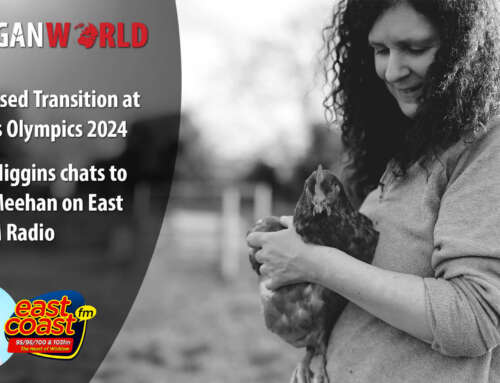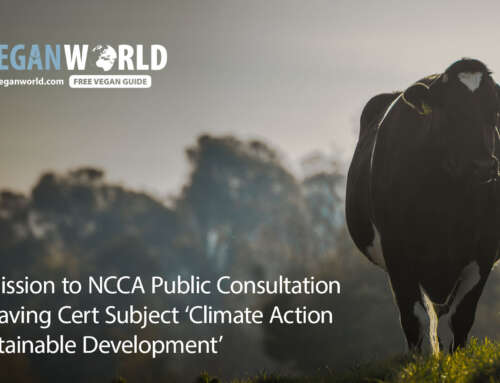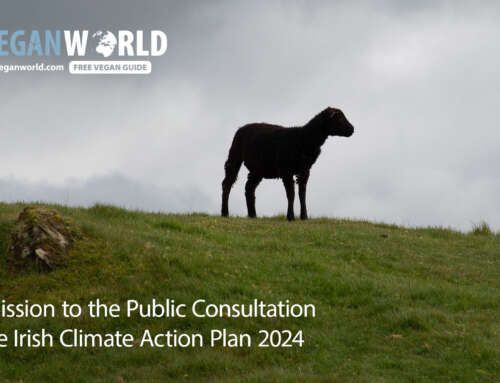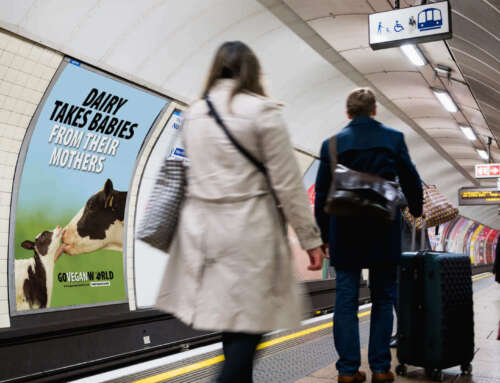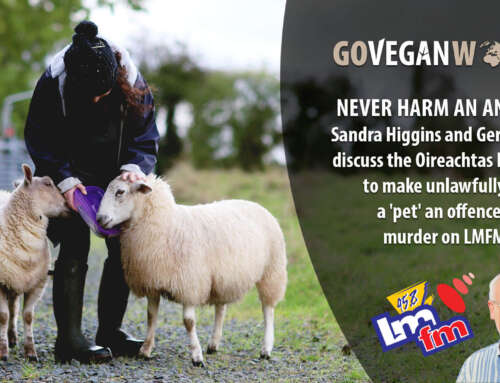Is vegan fast food a good thing? BBC Radio Scotland – The Mornings Programme with Kaye Adams, 8 January 2020
Go Vegan World was invited onto BBC Radio Scotland’s The Mornings Programme with Kaye Adams to discuss the huge increase in availability of vegan food options.
We were asked if the surge in vegan food options is all positive or if there are negative aspects to the massive increase in foods that are suitable for vegans. As with most things there are pros and cons. It’s very useful for vegans that there are more suitable options for them, especially “grab and go” options for when we’re travelling. Many people transitioning away from consuming animal products also find it helpful that there are vegan versions of foods they’re familiar with. People in difficult circumstances can find it hard to plan ahead, bulk buy or prepare their own food, going from meal to meal relying on cheaper convenience foods and there are now many more affordable vegan options.
On the other hand, we’re seeing a dilution of the meaning of veganism, as big businesses jump on the bandwagon in the interest of increasing profit, and the media portrays veganism as something new and “trendy”, a diet or something you can buy or participate in from time to time. Most people are not aware of the history of veganism or animal rights.
Our Barbara Bolton highlighted that the vegan philosophy dates back thousands of years to the philosophy of non-violence, and dates back to the 1930’s and 40’s in the UK; far from being new, there are people living in the UK now who have been vegan for 50+ years. There was very little in the way of vegan convenience foods when they decided to go vegan. When we look at the history of veganism we find that it has always been about living in a way that respects the rights of other animals by refusing to contribute to or participate in their exploitation or killing. But it also respects the rights of other humans and and protects the environment upon which we all depend. Going vegan is really a change in mindset, a realisation that we’ve been brought up in a society based on human supremacy among species and hierarchy among humans, in which the environment is viewed as a resource to be exploited. This mindset has led us to the human-caused devastation we are witnessing now. It has never been more critical that we acknowledge and live according to the true meaning of veganism.
We were asked if the philosophy of veganism is being diluted and the ethical basis of veganism drowned out by big business promotion of vegan products and media portrayals of veganism as a trend. We very much hope not, although there is no denying that in some ways it makes our work harder; when people think they already know what veganism is, they can be more closed off to learning about its true meaning.
We would never attempt to compete with big business slick marketing campaigns. You can’t sell people veganism, just as we can’t buy our way out of exploitation, violence and the destruction of the planet. What’s needed is fundamental change, both in our way of thinking and in our way of life, and that takes hard work and individual action as well as societal change. We will continue to do all we can to introduce people to the real ethical basis of veganism, encouraging them to see that their own values mean that they should stop participating in exploitation and violence.
The usual criticism was made of vegan processed foods being unhealthy. A huge amount of attention is given in the media to vegan convenience foods, forgetting that the we don’t need any of these products and many vegans wholly or predominantly live off whole foods, preparing delicious and nutritious meals from vegetables, fruits, grains, pulses, nuts, seeds and herbs, and often sourcing much or all of this locally and seasonally. The big corporations don’t make big profits from wholefoods and so there are no big marketing campaigns and little media coverage for this type of food. As usual, the fact that our supermarkets are packed with non-vegan packaged convenience foods was glossed over. While it is undeniable that there are a lot of packaged vegan convenience foods, that is simply the market responding to demand by providing vegan versions of animal-based convenience foods. As a society we have increasingly focused on convenience from the 1980’s onwards. There can be no doubt that it would be better for us all, health wise, in terms of expense, and for the environment if we ate less convenience foods and more meals we prepare ourselves from wholefoods; but that is not a specifically vegan issue, that is a societal issue. As a society we need to ensure that everyone has access to good quality, affordable wholefoods, ideally locally grown and with minimal and compostable packaging, and that they know how to turn it into delicious plant meals.
As ever, there was some suggestion that vegans are at particular risk of failing to get the nutrients they need. Everyone, vegan or not, should consider what they’re eating in order to ensure they’re getting all the nutrients they need, and anyone who is living off junk food all day every day is likely to be unhealthy. Most people are well aware of that. However, not all processed food is equal in terms of the nutrition profile. Tofu, for example, is processed, but it is also very good for us. Even when we look at “junk food” options, it has been pointed out by many vegans that the nutritional profile of the Greggs vegan sausage roll is better than that of its animal meat equivalent, in terms of protein and fat content. Many independent vegan-run businesses are producing inventive vegan produce, such as nut cheeses, oat milk, raw / sugar-free cakes and chocolate, often using minimal and compostable packaging. Not all processed foods are created equally.
However, we avoid consuming animal products because we recognise that animals are individual sentient beings who should not be used and killed, and so it is not a question of vegan food having to be healthier than animal-based equivalents. The question is can we be healthy on a fully plant diet with no animal ingredients, and the answer from all leading dietetics organisations is that we can. https://goveganworld.com/living-vegan/nutrition/
The nutritionist put up what they anticipated would be the animal-meat and dairy industry’s argument, that much of our land cannot be used to grow crops and so we would not be able to feed everyone if we did not use animals. They also referenced food imports, suggesting these would increase if we were all to switch to a vegan diet. We pointed out that a study published by Harvard Law School last year showed that if we removed animals from the food-system we would free up over 50% of our cropland, which currently used to grow food fed to animals. That cropland could be used instead to grow more food for humans. By growing more of the fruit, vegetables, grains, pulses and nuts already grown in the UK and by adding other suitable varieties not currently grown in large quantities we could meet the nutritional requirements of the whole population. In the UK we currently import over half of the food we consume, 90% of the fruit and vegetables, plus £2.2 billion of animal feed. By repurposing our cropland we could vastly reduce our food imports and become much more self-sufficient, possibly even completely self-sufficient in food production.
By removing animals from the food-system we would also free up the vast swathes of land currently used for grazing, on which we could reinstate native woodland. Expert reports are advising that if we are to have any hope of addressing human destruction of the environment and climate change we must reforest. By removing animals from the food-system we free up huge areas of land for woodland. The Harvard report shows that if we reinstated woodland on land currently used for grazing in the UK the carbon capture would be highly significant and we would increase biodiversity and reinstate other animals’ habitats, as well as removing the greenhouse gas emissions from the animals we use.
https://ec.europa.eu/knowledge4policy/publication/summary-report-eat-lancet-commission_en
Animal Rights History page: https://www.facebook.com/animalliberation/
UK Vegans in the 1970’s https://www.youtube.com/watch?v=VlTYjaQLy2o

